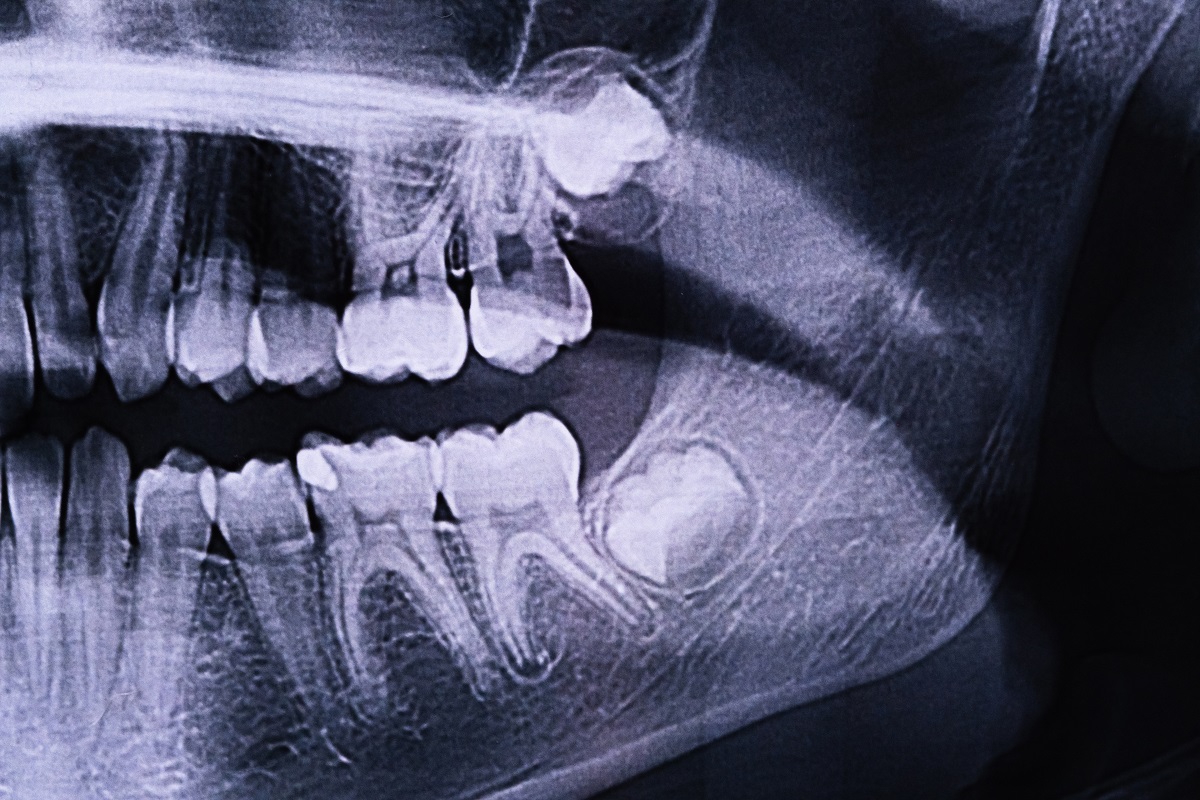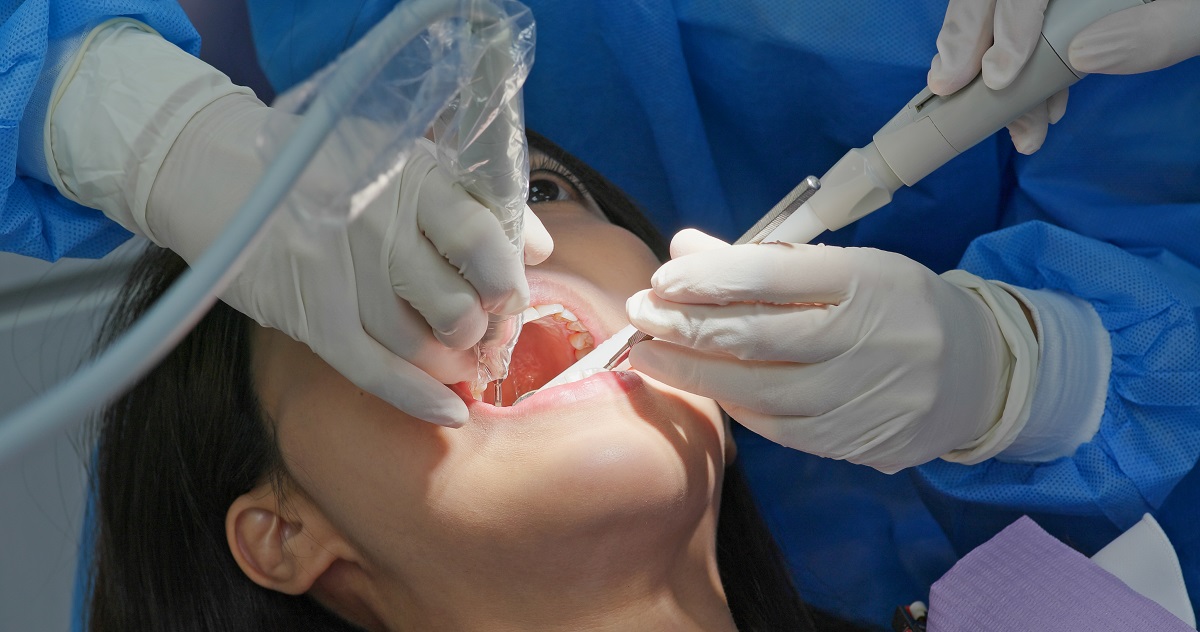There are some teeth located in the back of the mouth called wisdom teeth. These are the last teeth that appear during adulthood often. Generally, people have 4 wisdom teeth 2 on the top and 2 on the bottom. In most cases, these teeth are affected because do not have enough space to grow.
When wisdom teeth become impacted they cause pain and damage to other nearby teeth. However, in some cases, they do not cause any dental problems. These teeth are more likely to decay and provoke gum disease because are difficult to clean properly.
Commonly, treatment involves surgery to remove these teeth. This can help to reduce the symptoms and prevent further complications.
Symptoms
Symptoms caused by wisdom teeth often happen when they become infected. Check below some symptoms:
- Swollen or red gums
- Jaw pain
- Bleeding and tenderness of the gums
- Swelling around the jaw
- Bad breath
- Unpleasant taste in the mouth
- Difficulty opening the mouth
If you experience any of the previous symptoms and suspect you have wisdom teeth problems, you should consult a doctor immediately.
Causes
In most cases, these teeth become infected due to not having enough space to develop normally. Third molars usually appear between 17 and 26 years old. However, some people may notice that wisdom teeth develop and align with the second molars without causing any dental problems. Most people experience problems because the mouth is too crowded for the development of the thirst molars, which leads to infection.
It is considered that third molars rise when a part of the crown is visible (partially impacted wisdom teeth). Sometimes, third molars do not break through gums (fully impacted wisdom teeth). In any case, it does not matter partially or fully impacted wisdom teeth you have they can:
- Grow toward the next tooth, the back of the mouth, and other teeth at a right angle (it happens when the third molar is lying down within the jawbone).
- Grow straight but are trapped within the jawbone.
The only risk factor for impacted wisdom teeth is small spaces or blockages that prevent the teeth develop properly.
What Are The Potential Complications of Impacted Wisdom Teeth?
- Other teeth damage – Third molars can push the second molars causing damage to them. It elevates the risk of infection in that area.
- Cysts – Sometimes, damage to the jawbone, teeth, and nerves can happen due to sacs where wisdom teeth develop and become fluid-filled. In rare cases, noncancerous (benign) tumors can develop.
- Decay – These teeth are more likely to die because it is difficult to clean them due to their position. Moreover, food and bacteria can be trapped between the gum and partially impacted wisdom teeth.
- Gum disease – Pericoronitis is a painful condition in which the gums become inflamed. It occurs due to trapped food between the gum and third molars.
The only way to prevent complications caused by wisdom teeth is to have dental appointments regularly (every 6 months). Your dentist will clean the teeth and check for inflammation and other abnormalities. Impacted wisdom teeth can be seen on X-rays that should be done regularly according to the doctor’s recommendations.
Diagnosis
Impacted wisdom teeth are usually identified during a dental examination by your dentist or oral surgeon. They can also determine if there is another condition that causes the symptoms. Moreover, dentists can perform some X-ray tests to get detailed images of your impacted wisdom teeth.
Treatment
Sometimes, it is challenging to treat an impacted wisdom tooth due to other dental problems (including infections). In such cases, the only way to treat the symptoms is surgery to remove these teeth. Check below some treatment options usually recommended by dentists:
How to Manage Wisdom Teeth without Symptoms?
In most cases, doctors do not approve the removal of wisdom teeth if they do not cause any problems such as pain, damage to other teeth, gum disease, and others (also called asymptomatic wisdom teeth). On the other hand, some specialists advise removing the third molars due to reduced risk of complications and because it is safer and well tolerated in young people compared to older ones. Check below some arguments of the dentists that recommend the removal of asymptomatic wisdom teeth:
- They advise removing third molars to prevent future complications and that asymptomatic wisdom teeth could be not free of disease.
- It is difficult to clean them because there is not enough space for teeth to emerge.
- Surgery to remove wisdom teeth is more tolerated and less risky in younger adults than later in life.
On the other hand, there are some oral surgeons and dentists who advise a more conservative approach. For example, they say that:
- There is no evidence of dental problems later in life caused by impacted wisdom teeth compared to a younger adult.
- The risks and expenses of the surgery outweigh the benefits.
- These healthcare specialists recommend taking out the teeth when they provoke dental problems (such as infection).
Surgery
Commonly, when impacted wisdom teeth cause pain, inflammation, or other dental problems, it is removed by surgery. This procedure is also called extraction and it is performed in the following cases. Examples include:
- Infection or disease of the gums (also called periodontal disease)
- Tooth decay
- Tumors or cysts associated with third molars
- Damage to near teeth
- Sometimes, surgery to remove the third molar is done to prevent future complications
People who experience extraction often go home at the same time. Check below what includes extraction:
- Anesthesia – In most cases, oral surgeons will numb the affected area using local anesthesia. Less commonly, you may need general anesthesia. It is recommended in severe cases.
- Tooth removal – To remove the affected tooth, the oral surgeon will make a cut in the gums to allow access to the impacted tooth root. Thereafter, they usually close the wound.
It is possible to experience pain, bleeding, and swelling of the site or jaw. Moreover, some people cannot open their mouths wide for a short period after surgery. Discuss with your dentist about ways to relieve pain and reduce swelling.
Frequently Asked Questions
What are the symptoms of impacted wisdom teeth?
- Bad breath
- Difficult to open mouth wide
- Unpleasant taste in the mouth
- Swelling around the jaw or jaw pain
- Bleeding gums
If you experience any of the previous symptoms, do not hesitate to see a doctor.
What are the potential complications of impacted wisdom teeth?
These include:
- Periodontal disease
- Infection
- Cysts or tumors
- Nerve injury
- Swollen lymph nodes in the neck
- Tooth decay
Consult with your doctor about ways to prevent complications of the impacted wisdom teeth.
What is the best treatment for the impacted wisdom teeth?
First, doctors try to reduce the symptoms using medicines and other procedures (such as cleaning) but if you do not notice any improvements you may need surgery. This procedure is known as extraction and it involves the removal of the affected tooth. Ask your healthcare professional if you have additional questions.




